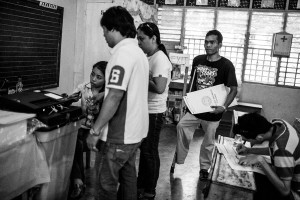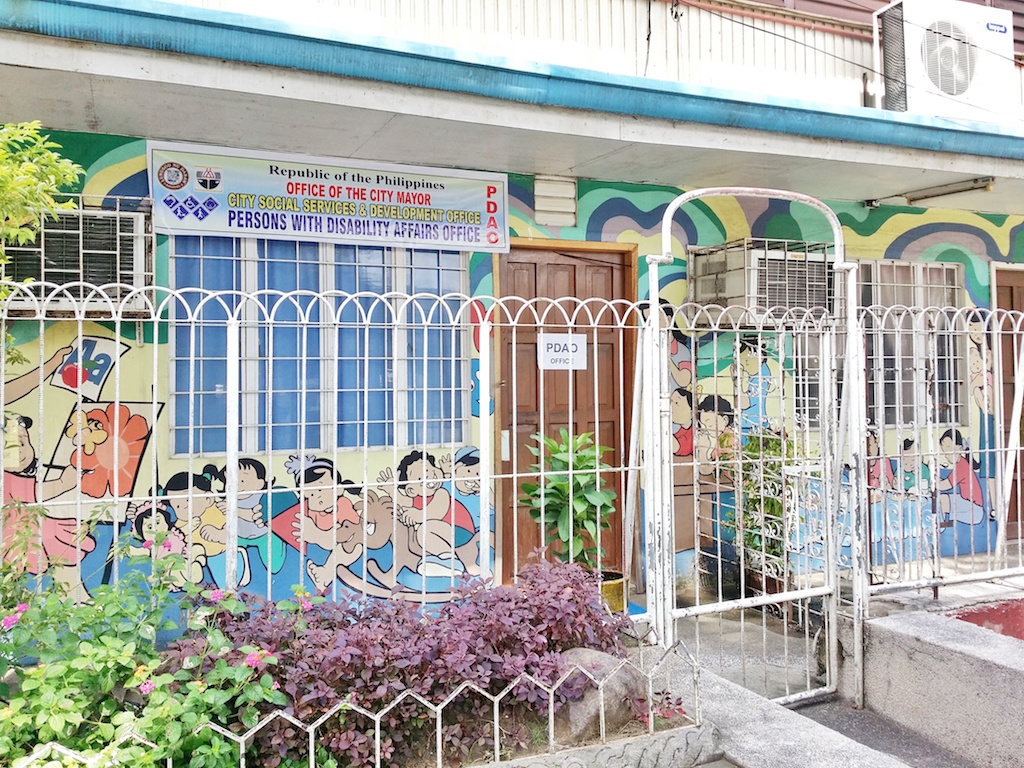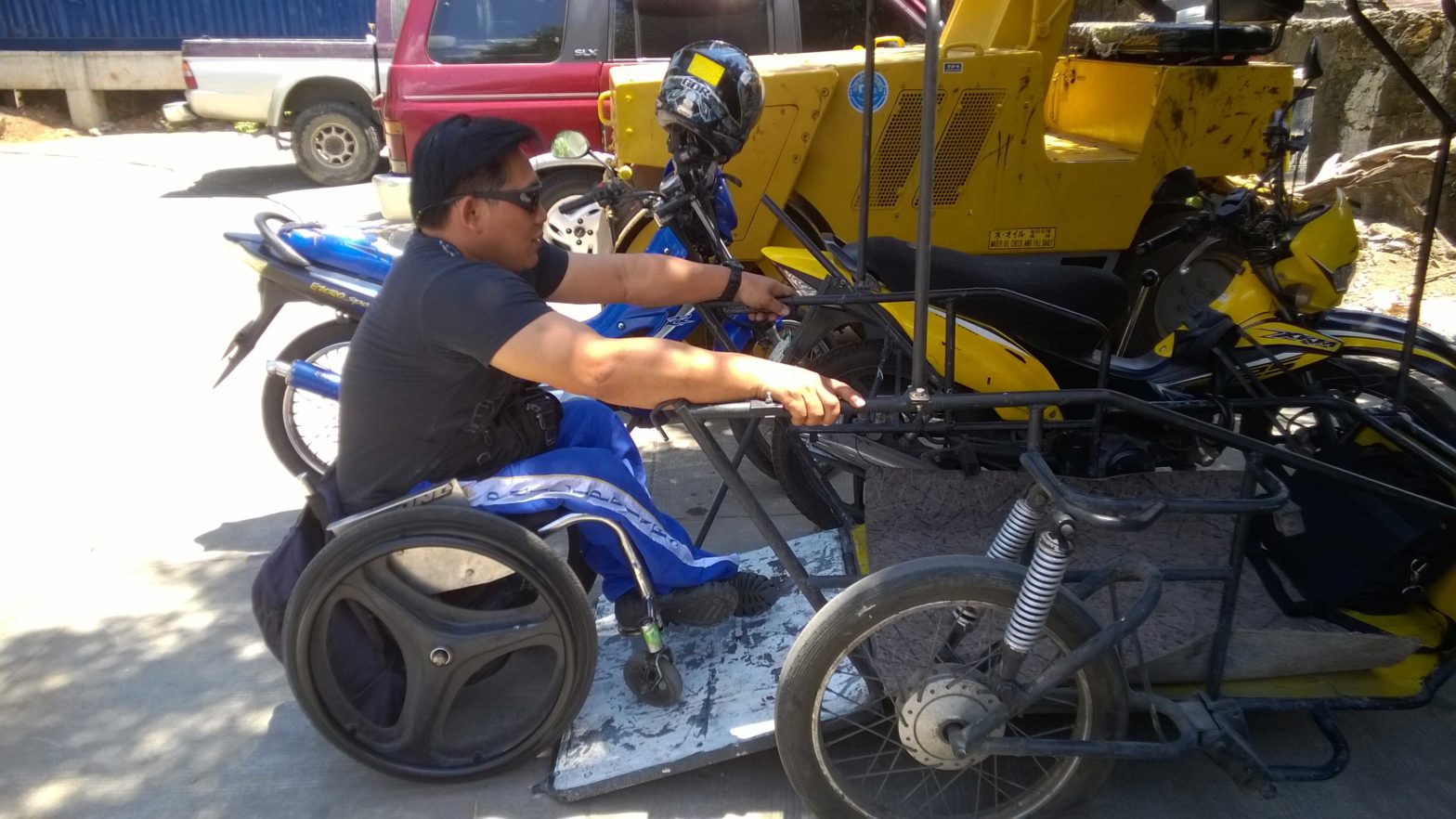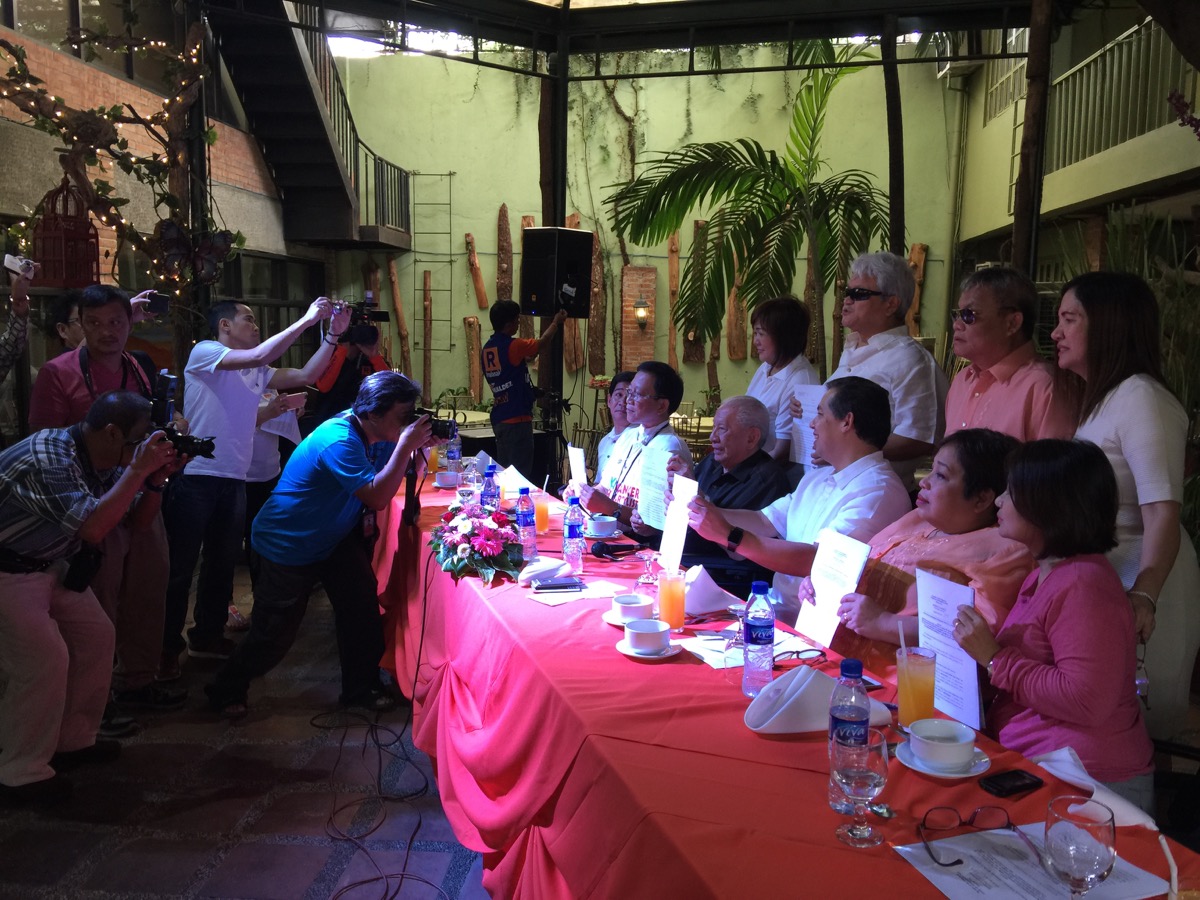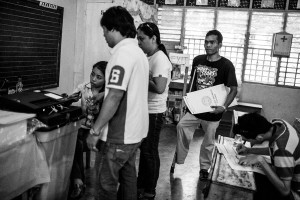
By VERA Files
PERSONS with disabilities (PWDs) and senior citizens in four pilot areas will be voting in accessible polling precincts to be set up at the ground floor of selected SM malls for the Oct. 28 barangay elections.
Elections Commissioner Grace Padaca, vice chairperson of the Commission on Elections barangay steering committee, said the poll body has approved one pilot area each in Luzon, Visayas, Mindanao and Metro Manila in preparation for the full implementation of the poll accessibility law in the 2016 national elections.
“On Oct. 28, there will be places in the country where elderly and PWDs need not go to their regular voting centers. They can vote in branches of Shoemart,” said Padaca, herself a PWD.
These are SM City Manila, Barangay 659, Manila; SM City Lipa, Barangay Sabang, Lipa City, Batangas; SM City Cebu, Barangay Mabolo, Cebu City; and SM City General Santos, Barangay Lagao, General Santos City.
President Benigno Aquino III in February signed Republic Act 10366 authorizing the Comelec to “establish precincts of a nonterritorial nature, exclusively for (PWDs) and senior citizens who in their registration records manifest their intent to avail of their right to a separate precinct.”
The law mandates the Comelec to establish at least one precinct for every voting center provided with assistive devices and services of experts for PWDs and senior citizens.
Under the law, senior citizens and PWDs may ask family members up to the fourth degree of sanguinity or consanguinity or an election inspector to assist them while they fill up the ballot. The assistor should submit under oath a document saying he or she should only fill up the form according to the PWD or elderly’s instructions.
The oath should also state that the assistor promises to keep the contents of the ballot secret, the law said.
Violations of this provision constitute an election offense under the Omnibus Election Code punishable by one to six years’ imprisonment and revocation of the right to suffrage.
According to the Comelec’s implementing rules and regulations of the law, the Comelec should keep an updated record of the PWD and elderly registered voters. The database should also include the type of disability and assistance the voters would need.
Comelec said each accessible precinct should accommodate a maximum of 200 voters.
Poll chief Sixto Brillantes Jr., himself a senior citizen, said senior citizens should no longer bring their senior citizens’ card as the Comelec has updated their record of voters for the special polling places.
The barangay elections is expected to draw around 54 million voters.
The Comelec has set aside 170,603 clustered precincts spread throughout the country’s 42,028 barangays in 80 provinces.
